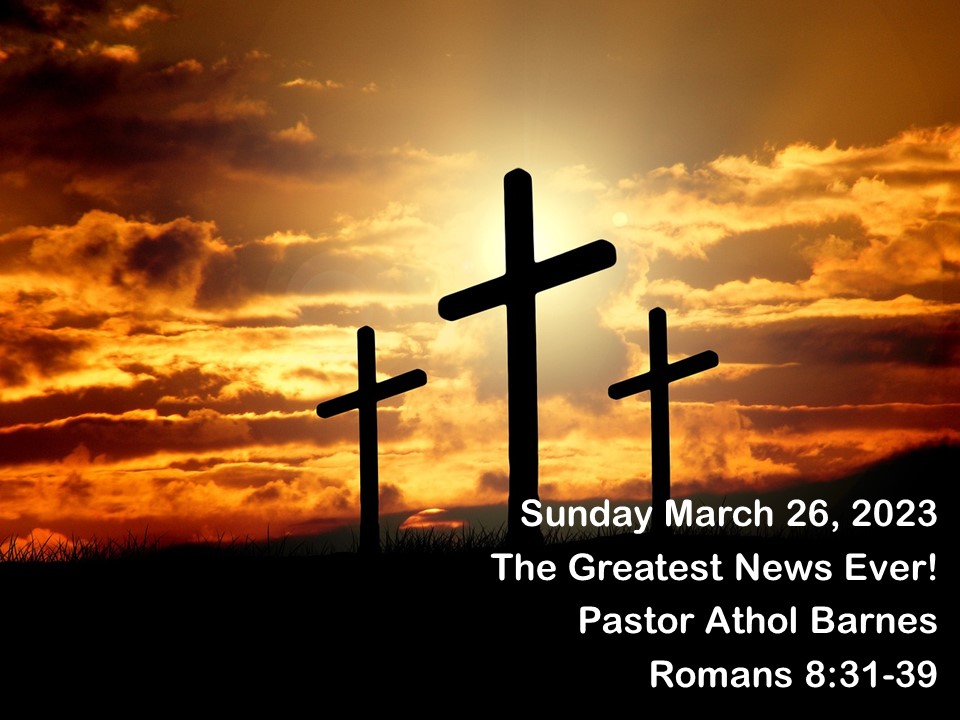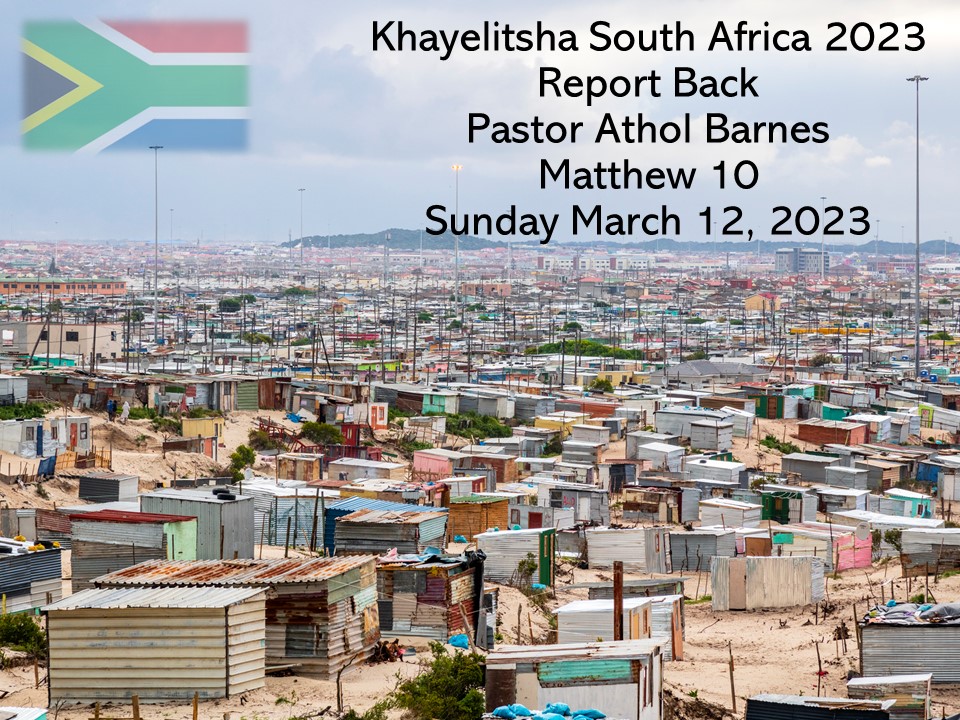
We all like good news, don’t we. If we really grasp this news, it will change the way we respond to God.
We know that the Gospel is the Good news, that God became a man and died on a cross for our sins, and that God raised Jesus from the dead so that we could be reconciled with God if we put our faith in Jesus.
Easter weekend is at the core of the Gospel. In spite of this good news, many of us still struggle with completely trusting God.
Romans 8 verses 31 to 39 has five profound promises that are really good news. If we grab a hold of these promises, we will have no problem trusting God for whatever He allows in our lives.
Here are the five promises:
1: God is for us (Romans 8:31)
Our Heavenly Father is not distant or disconnected from us. The expense that God paid for our salvation is beyond what we can imagine. The cross is an outpouring of perfect, divine love (Romans 5:8).
If God displayed His love for us in such a way while we were sinners and separated from Him, now that we are reconciled to Him, how much more will he give us all we need (1 Peter 2:9).
2: God graciously gives us all things (Romans 8:32).
God our Heavenly Father gave His son for us so that we could be in right standing before God.
As a result of our standing before God, He blesses us. He blesses us with the basic things we need and then even the things we don’t need. God loves to bless His children.
It is a good daily exercise to look for those lavish gifts from the Father, the unexplainable special events or things that are simply gifts from heaven.
The more you see those gifts, the more you will understand His nearness and the truth that the eye of your Heavenly Father is really on you!
3: No condemnation (Romans 8:34).
This incredible chapter begins and ends with a promise we all need to hear regularly (see Romans 8:1).
Who can possibly condemn us? Verse 33 says that it is God who justifies, He has declared us righteous in Christ. Satan is the accuser, but his accusations fall on deaf ears, for we are God’s chosen and beloved ones. Jesus has already paid the price for our salvation. There is no condemnation.
Does this mean that we can sin as much as we like?
Absolutely not, Paul addresses this in chapter 6:2, “By no means! We are those who have died to sin; how can we live in it any longer?”
When we sin, we are convicted and we repent quickly, bringing it to the cross (see 1 John 1:9). Our sins are forgiven, there is no condemnation. Sometimes, our emotions have to catch up with reality.
4: Jesus is interceding for us (Romans 8:34b).
Because Jesus is at the right hand of the Father, he is talking to God the Father about you. More than talking, he is your advocate and perfect high priest.
But not only is Jesus our High priest and advocate interceding for us, we also have the Holy Spirit interceding for us (see Romans 8:27 and Hebrews 7:25). This intercession in heaven assures us that we are secure.
5: You are loved (Romans 8:35-39).
God loves us with an irresistible and unconquerable love. Do you know how much you are loved?
The reality of life is that there is hardship, sickness and pain. It is a lie of the prosperity Gospel teaching that our lives are supposed to be free from sickness, pain, and hardship. But God uses the pain and difficult circumstances for our good (Romans 8:28).
God does not shelter us from the difficulties of life because we need them for our spiritual growth. God assures us that the difficulties of this life are working for us and not against us. God permits trials to come that He might use them for our good and His glory.
When going through trials, it is tempting to feel that God has deserted us. But that is when He is nearest, just like a parent who picks up a child who has fallen and hurt himself.
Our Heavenly Father is nearest when we feel the most unworthy, because of His great love for us. Paul goes on to write that we have absolutely nothing to fear (Romans 8:39). This is not a conditional promise of God, rather it is based on the victory that Jesus won on the cross. His victory becomes our victory.
This security in Christ is an established fact, and we claim it for ourselves because we are in Christ. Nothing can separate you from His love. If God be for us, who can be against us!
To live in this knowledge is freedom, but it requires faith to believe these incredible promises.
Too often we walk by feelings. Our feelings and emotions dictate our perceived reality, but by walking in faith and believing that God loves you with an all-encompassing love, changes the way we live. It changes the way we respond to challenges in life. We no longer have to walk in fear, but rather we can walk in perfect love (See 1 John 4:18).
Warren Wiersbe wrote, “The more we love God, the more we understand the love of God. And the more we understand His love, the easier it is to trust Him. After all, when you know someone intimately and love him sincerely, you have no problem putting your confidence in him.”



